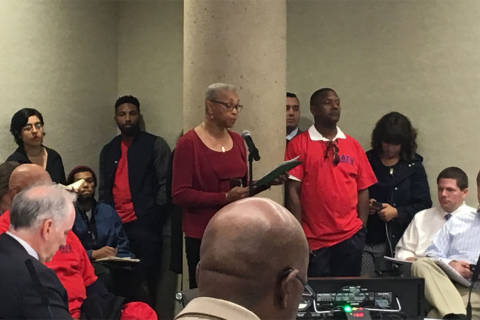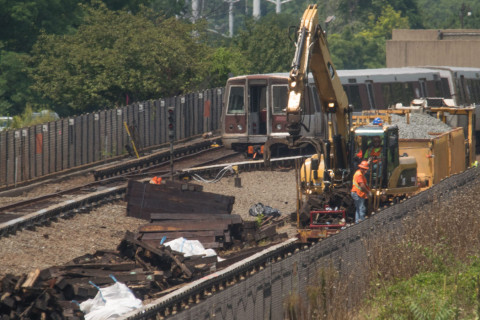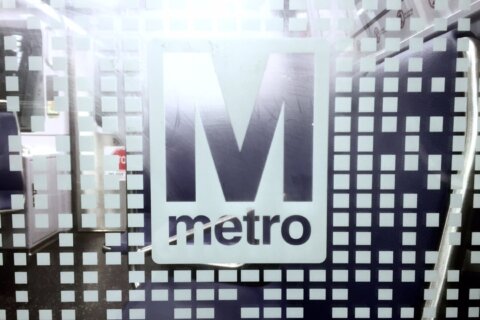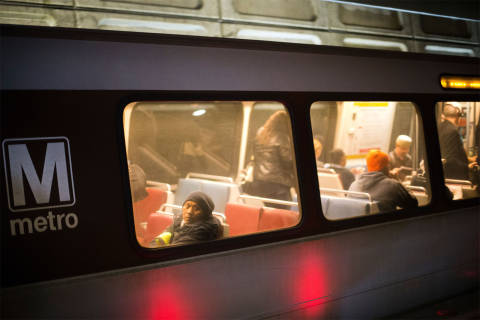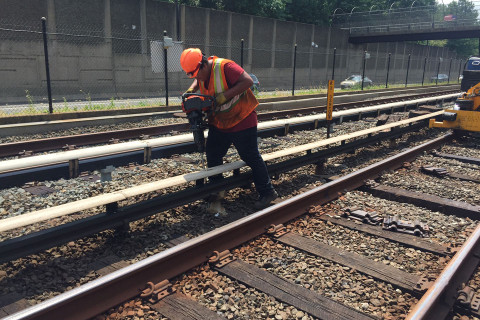WASHINGTON — Metro is combining a series of improvement plans into a new batch of track work, station projects and more that the agency is calling “Back2Good.”
The branding, announced Wednesday, includes plans to fix railcars that are regularly causing delays, clean up and brighten stations, and prevent near-misses like the incident in October when federal safety inspectors were nearly struck by a speeding train.
The impact on riders is not expected to change next year, even with the most significant 24/7 track work scheduled to end by late June.
A white paper on the new program acknowledges that bringing riders back to the system will require better service, but General Manager Paul Wiedefeld said at a regional transportation forum Wednesday morning that some so-called “SafeTrack” work could continue into early next fiscal year. That fiscal year begins in July, but Metro has called some regular track work projects part of the overall plan so it does not necessarily mean consistent rush hour track work would remain.
In the white paper on the new program, Metro says “SafeTrack must be replaced with aggressive maintenance that prevents track defects,” and weekend and evening work must continue.
On Thursday, a Metro Board committee is set to vote on reductions in hours that Wiedefeld argues are needed for maintenance work. Metro Board Chairman Jack Evans told WTOP Wednesday that he believed the board would approve the cuts for one year, from July 2017 through July 2018, with a review of whether to continue the service cuts later.
For 2017, the outline includes many already announced projects such as efforts to keep train operators from running red signals, improving protections for workers on the tracks, and continuing work on cell coverage and radio upgrades.
For railcars, Metro plans to replace all 1000 and 4000 series cars by the end of next year. At that point, Metro would have enough of the new 7000 Series cars that all eight-car trains would be made up of the new railcars which Metro only runs in eight-car sets. Older railcars would run as six-car trains with all cars from the same era which can improve reliability.
In stations, Metro is now promising to power wash and scrub stations each year rather than every four years. Each station would have a senior manager in charge of overseeing any additional issues.
The program promises fixes to the troubled Rail Operations Control Center. The issues with the equivalent of the system’s air traffic control have been known for years.
Wiedefeld plans to use Metro’s measures of on-time performance and responses to customer surveys to measure whether the changes are helping.

